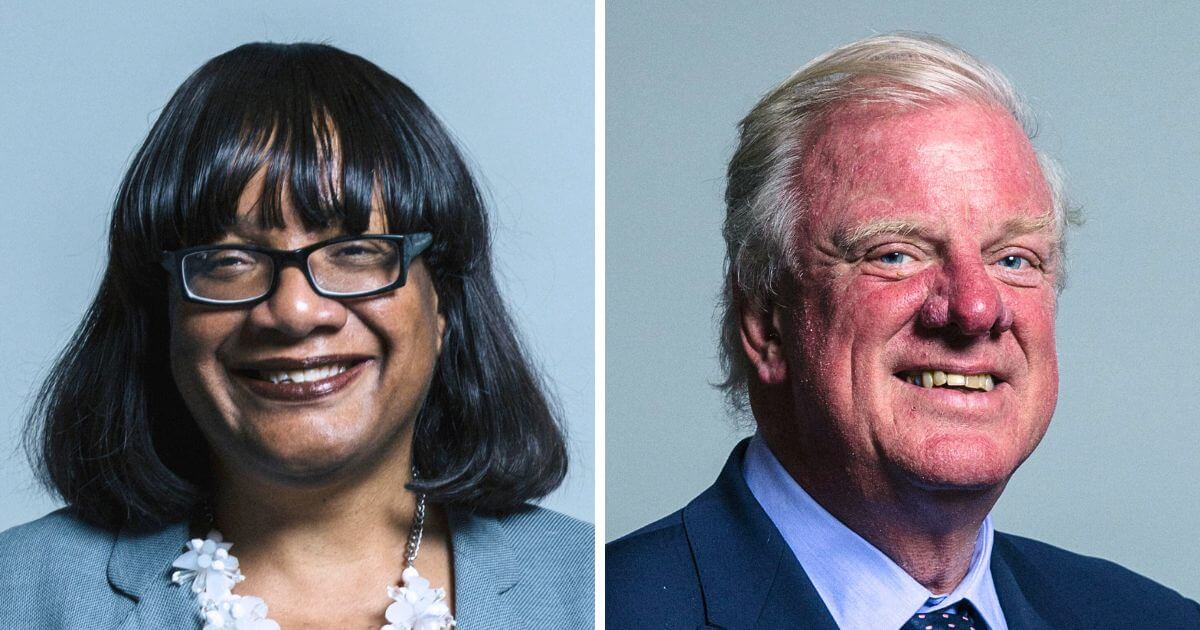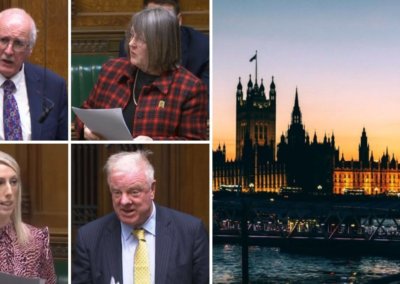Britain’s longest-serving MPs, the Mother and Father of the House of Commons, have released a joint statement calling for MPs to reject the Leadbeater assisted suicide Bill.
Coming from very different political standpoints, Diane Abbott and Sir Edward Leigh, who have the longest unbroken service, making them Mother and Father of the House, have united in their opposition to Kim Leadbeater’s Terminally Ill Adults (End of Life) Bill. They argue that the process of the Bill has been “rushed”, that it will negatively impact “vulnerable minorities” if it becomes law, and that laws “such as this need the utmost care because of the risk of unintended consequences”.
With just 18 days given to MPs to scrutinise and debate the legislation compared with the 49 days MPs had to scrutinise the last assisted suicide bill in 2015, Abbott and Leigh shared their worries about the “inadequacy” of the amount of parliamentary time allocated to the Bill. This problem has been “heightened by the unprecedented number of new MPs. Parliament will have sat for just 12 weeks by the time MPs vote on what is, quite literally, a matter of life and death”.
“There is more than a suspicion that the pressure groups behind this proposed change have sought to take advantage of an inexperienced new parliament. Either way, the flawed process has been lamentable and wholly unacceptable for a matter of such importance”, they add.
While noting the sincerity of those “high-profile celebrities” pushing for a change in the law, the Mother and Father of the House argue that “MPs must make laws based on their effect on every member of society, not just those whose profile gives them a prominent voice”.
“Evidence from elsewhere suggests those most at risk when assisted suicide is legalised are vulnerable minorities. Such people, unlike privileged elites who are used to exercising autonomy over every part of their lives and who can afford good-quality social and palliative care, are most likely to resign themselves to an assisted death against their will because they are unable to access the support they require”.
Echoing themes that the Health Secretary has raised during this debate, Leigh and Abbott also encourage us to “consider the elderly widow who has been hospitalised and worries she is taking up a valuable bed in an NHS under significant strain and would be better off dead”.
Though this situation may be uncommon, “the very act of legalising assisted suicide makes them possible”.
Assisted suicide and euthanasia in Canada and Oregon
Evidence from Canada, where euthanasia and assisted suicide have been legal since 2016, indicates that a disproportionate number of non-terminally ill people who died by “assisted dying” came from Ontario’s most marginalised areas.
The latest annual assisted suicide report ‘Oregon Death with Dignity Act: 2023 Data Summary showed that, among the end-of-life concerns listed by those who ended their lives, almost half (43.3%) of those who ended their lives reported being concerned about being a “[b]urden on family, friends/caregivers”, and 8.2% said they were concerned about the “[f]inancial implications of treatment”.
The senior MPs ended their statement by highlighting “the urgent need to increase investment in palliative care”. Association for Palliative Medicine member and palliative care doctor, Sarah Foot, who is opposed to new laws allowing assisted suicide, is calling for greater Government investment in palliative care. She said “We shouldn’t need charities to fund it. We need to invest in the workforce and invest in the palliative beds so people can die comfortably”.
Spokesperson for Right To Life UK, Catherine Robinson, said “Concern about this dangerous Bill cuts across party lines and it is deeply significant that this concern is coming from opposite ends of the House of Commons. This passionate plea by Sir Edward Leigh and Diane Abbott highlights just a small number of the reasons why the Government should reject Leadbeater’s disastrous assisted suicide Bill and instead fund better hospice and palliative care”.
“As has been seen in Canada, Oregon and other jurisdictions, introducing assisted suicide can place many vulnerable people at risk of abuse and pile immense pressure on the poor and vulnerable to end their lives prematurely. This would be an absolute disaster for Britain”.
“MPs who are still undecided about which way to vote should listen to Sir Edward Leigh and Diane Abbott’s well-reasoned arguments, and vote against this assisted suicide legislation, which is a disaster in waiting”.











